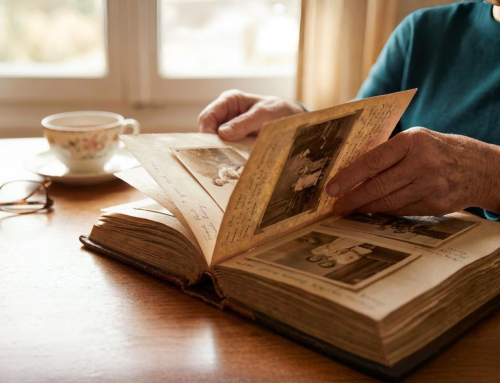In the ever-evolving landscape of healthcare, change is not optional—it’s essential. But how we approach it makes all the difference. At Tellegacy, we believe change management is not a one-time initiative delivered to staff—it’s a culture we embody, together, every day.
That’s why Dr. Jeremy Holloway is leading the charge with a new model of change management training that blends age-friendly care, grief-informed leadership, and compassion-driven culture transformation. These workshops are designed to help healthcare staff, administrators, and even residents understand that sustainable change is not something we “do” to others—it’s something we grow into, together.
Why Change Management in Healthcare Often Struggles
Across the industry, many change management efforts fall short because they focus on checklists and compliance rather than human experience. In fact, research from Prosci and Harvard Business Review reveals that 70% of organizational change initiatives struggle—often because leaders focus too much on outcomes, and not enough on culture.
True transformational change requires:
- A shared sense of purpose
- Ongoing, values-based communication
- An emotional understanding of what people may lose in the process—even when change is positive
Dr. Holloway reminds us, “Grief isn’t just about people—it’s about places, identities, and routines. In healthcare, where everything is deeply personal, that matters.”
Workshop Objectives: What You’ll Learn
Through Dr. Holloway’s unique lens, participants in Tellegacy’s Change Management training explore:
The Intersection of Grief and Change
How recognizing and validating grief can unlock readiness for growth and transformation.
Age-Friendly Principles for All
How age-friendly systems (including the 4Ms: What Matters, Medication, Mentation, and Mobility) can guide change across populations and departments—not just for older adults.
Building a Culture of Belonging and Purpose
Why values—not just goals—should drive the change process, creating environments where both staff and residents thrive.
Team-Based Resilience and Emotional Intelligence
Strategies for empowering staff through change without burnout, blame, or “make sure Jack or Sarah does it” finger-pointing.
Grief and Gratitude as Catalysts
How grief and gratitude together make space for healing, reflection, and meaningful progress.
“Grief and gratitude are best friends,” says Dr. Holloway. “They’re the peanut butter and jelly of sustainable change.”
🌱 Change is a Culture—Not a Task
At Tellegacy, we’re shifting the narrative: Change is not something to survive—it’s something to value. The secret to successful change management isn’t just focusing on what needs to change—it’s about returning to what we value most as we approach change.
Change isn’t a form or a policy. It’s not a bulletin board or a monthly meeting. It’s not about forcing a new procedure or hoping it sticks. Change is a lived culture. One that honors the past while welcoming the future. One where grief has space to breathe and gratitude has room to grow.
❤️ What Makes This Training Different?
- Rooted in relational intelligence and restorative practices
- Informed by geriatric health and human development
- Tailored for interdisciplinary healthcare teams
- Delivered with humility, humor, and humanity
Bring Change Management Training to Your Organization
Whether you lead a long-term care community, a hospital system, or a rural clinic, Dr. Holloway’s training meets teams where they are—and brings them forward, together. Let’s create spaces where staff and residents don’t just cope with change—they flourish through it.
Ready to reimagine change in your healthcare setting?
Contact us at social@tellegacy.com or contact Dr. Holloway at Jeremy.holloway@tellegacy.com to schedule a consultation.
Search online for more information:
- Change management in healthcare
- Grief-informed leadership
- Age-friendly healthcare training
- Culture change in hospitals
- Organizational change in elder care
- Emotional intelligence in healthcare teams
- Healthcare staff development training






